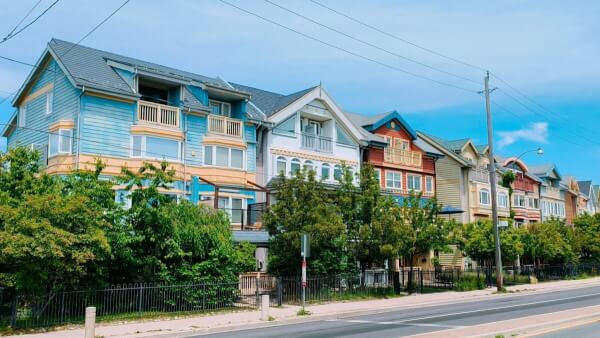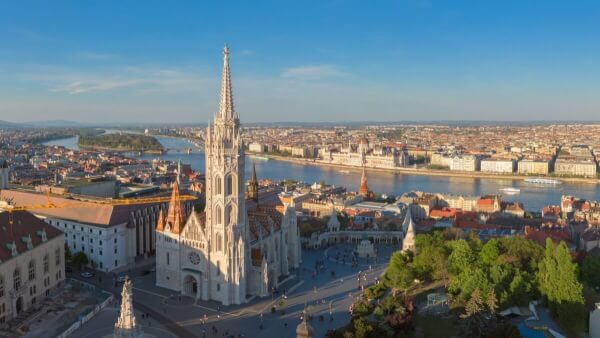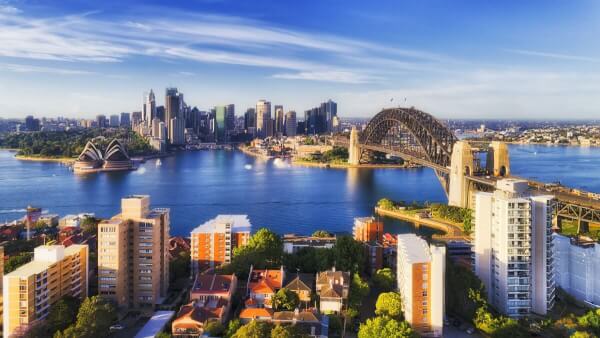Can international students open an ISA account in the UK?
Can international students open an ISA account in the UK? Find out in our handy guide, including tips on the best ISAs currently available.

Iceland is an astonishingly beautiful country, with a thriving arts and culture scene and an exciting capital city – Reykjavík.
Sure, it’s really, really cold. But if you wrap up warm, you’ll enjoy eco-friendly living, lots of personal space (there are only around 341,000 residents in the whole country¹) and even the chance to see the famous Northern Lights.
Whether you’re retiring, temporarily relocating, or moving to Iceland for good, this guide can help you get to grips with money and spending in this magical country.
We’ll cover the cost of living in Iceland compared to the UK, including essentials such as transport, eating out and the average rent in Iceland.
Let’s begin by talking about the money in Iceland.
The official currency in Iceland is the Icelandic Krone (pronounced ‘krona’). Here’s what it’s worth in relation to other strong world currencies:
If you need to find out the exact worth of your money in Icelandic Krone, you can always use an online currency converter. They’re quick, accurate in terms of current exchange rates and much easier than trying to work out the conversion in your head.
You’ll also need to be careful where you exchange GBP or another currency for ISK. Money exchange services and particularly banks don’t always offer the best rates. There’s often a hefty mark-up added on top, which makes the conversion more expensive for you. Here’s a little more about how it works.
One of the best ways to guarantee a better exchange rate is to use a specialist service like Wise.
Sending money to/from Iceland isn’t currently covered, but there’s still a clever way you can save money when converting currencies.
Open a multi-currency account with Wise and you can convert GBP to ISK with only a tiny upfront fee. The same goes for spending in Iceland using a Borderless debit Mastercard.
You may think that this fee will make your conversion more expensive, but remember that Wise always gives you the real, mid-market exchange rate. This could save you a bundle compared to the mark-up banks tend to add onto the exchange rate.
Iceland isn’t the cheapest place to live. In fact, it comes in third in Numbeo’s 2020 Cost of Living Index 2020² – just after Switzerland and Norway.
But what about the cost of living in Iceland compared to UK cities, such as London, Manchester and Edinburgh? Let’s take a look at some of the main expenses such as rent, meals out and transport.
| Comparing basic cost of living | 1 bedroom flat in city centre (monthly rent) | Meal for 2 (mid-range restaurant, three courses) | Transportation (monthly pass) |
|---|---|---|---|
| London, UK³ | £1,729.49 | £60.00 | £150.00 |
| Manchester, UK⁴ | £823.62 | £60.00 | £69.78 |
| Edinburgh, UK⁵ | £805.14 | £60.00 | £56.00 |
| Reykjavík, Iceland⁶ | £1,109.56 | £89.03 | £71.22 |
| Akureyri, Iceland⁷ | £588.21 | £55.64 | £0.00 |
The capital city of Reykjavík is probably the only Icelandic city that most people know. It’s famous for its vibrant cultural scene, including world-class restaurants, modern museums, shops and nightlife. It’s also where tourists come to explore the fantastic natural wonders nearby, such as the Golden Circle, Northern Lights and Blue Lagoon geothermal spa.
But although around two-thirds of Icelanders live in Reykjavík, it’s far from the only place worth talking about in Iceland.
There’s also the charming, compact town of Akureyri, known as the ‘Capital of the North’. It’s a haven for winter sports, with easy access to skating rinks and fabulous ski slopes. People flock to family-friendly Akureyri for whale watching, horseback riding, its many cafes and bars, and its beautiful botanical gardens.
Akureyri’s famous turf houses, built in 1865, also offer a glimpse into how previous generations of Icelanders lived.
With rent taken out of the equation, let’s look at how much you can expect to spend on living expenses each month. As a guide, we’ll look at living expenses in Reykjavík for a single person, and a family of four:
| Total living expenses in Reykjavík⁶ | Average cost |
|---|---|
| 1 person, per month (without rent) | £880.84 |
| 4 person family, per month (without rent) | £3,265.58 |
| Utilities, basic, for 85m² apartment | £71.97 |
The cost of living may be quite high in Iceland, but are the average salaries equally high? If you’re planning a move there, it’s quite important to know how much you could expect to earn. Let’s take a look at the average salaries in Reykjavík:
| Salary averages for Reykjavík⁸ | Average salary |
|---|---|
| Architect | £75,319 |
| IT manager | £70,971 |
| Sales manager | £60,011 |
| Nurse | £59,042 |
| Accountant | £42,351 |
| Teacher | £37,987 |
Is it expensive to live in Iceland, and how much space can you get for your money? Let’s find out, by comparing the monthly rent for small and large apartments in both Reykjavík⁶ and Akureyri⁷:
| Rental cost in Reykjavík | Average monthly cost |
|---|---|
| 1 bed apartment in city centre | £1,109.56 |
| 1 bed apartment outside city centre | £912.52 |
| 3 bed apartment in city centre | £1,766.90 |
| 3 bed apartment outside city centre | £1,478.52 |
| Rental cost in Akureyri | Average monthly cost |
|---|---|
| 1 bed apartment in city centre | £588.21 |
| 1 bed apartment outside city centre | £454.40 |
| 3 bed apartment in city centre | £1096.93 |
| 3 bed apartment outside city centre | £918.08 |
Iceland’s universal healthcare system is partly paid for by the state’s Icelandic Health Insurance Fund, and partly by patient contributions. This means that it isn’t free, but it’s far from expensive.⁸
You can get an appointment with a GP for around £4, and emergency hospital treatment costs from around £38. Costs are reduced substantially for elderly and disabled people, and children.⁹
Dental care isn’t covered by the Iceland Health Insurance Fund, so you’ll need to pay for dental treatment if you need it.
If you plan to live and work in Iceland for more than 3 months, you must register as a resident – and this will give you access to the Icelandic healthcare system.
Due to Iceland’s remote and rugged landscape, as well as its sparse population, nearly 70% of people get around by car. There are bus services, but no railway or metro rail routes.¹⁰
A monthly public transport pass in Reykjavík⁶ will cost you around £71, while all city buses in Akureyri are free.¹¹
If you want to travel between cities (such as between Reykjavík and Akureyri for example), flying is often the best option.
Iceland has seven universities, including the University of Iceland (which features in the Shanghai Academic Ranking of World Universities 2020)¹² and Reykjavík University in the capital. There’s also the University of Akureyri.
There are no tuition fees at public universities such as the University of Iceland and the University of Akureyri, although there is an ‘application fee’ of around £333 to pay.¹³
Private institutions such as Reykjavík University charge from £ 1,426 per term (there are usually two terms a year) for undergraduate courses if you are an EU/EEA citizen. This rises to around £4,162 for overseas students, depending on the course.¹⁴
Iceland is undoubtedly a pricey place to live compared to nearly all other countries, but it also promises equally high salaries.
Still, it’s important to get the very most of your money during your time in Iceland. This is why solutions like Wise are so useful, as they can help you save with tiny fees when exchanging money in Iceland or spending on your Borderless debit Mastercard.
Just remember the golden rule – compare before you convert. You might not be getting the best deal on exchange rates and fees if you stick with your bank.
After reading this guide, you should be all set for your big move to Iceland. It’s an exciting, unusual and very beautiful place to live, but be prepared to pay more than you’re used to for some of the essentials.
Gangi þér vel! (good luck!)
Sources:
All sources checked on October 13, 2020
*Please see terms of use and product availability for your region or visit Wise fees and pricing for the most up to date pricing and fee information.
This publication is provided for general information purposes and does not constitute legal, tax or other professional advice from Wise Payments Limited or its subsidiaries and its affiliates, and it is not intended as a substitute for obtaining advice from a financial advisor or any other professional.
We make no representations, warranties or guarantees, whether expressed or implied, that the content in the publication is accurate, complete or up to date.

Can international students open an ISA account in the UK? Find out in our handy guide, including tips on the best ISAs currently available.

Plans for new 100% property tax in Spain for UK buyers announced - read this to find out everything you need to know, and what to do next.

Read our comprehensive UK guide to buying property in Canada as a foreigner, including average prices, fees, taxes and where to start house hunting.

Read our comprehensive UK guide to buying property in Indonesia as a foreigner, including average prices, fees, taxes and where to start house hunting.

Can I keep my French bank account if I move abroad? Find out everything you need to know here in our handy guide.

Can I keep my Australian bank account if I move abroad? Find out everything you need to know here in our handy guide.